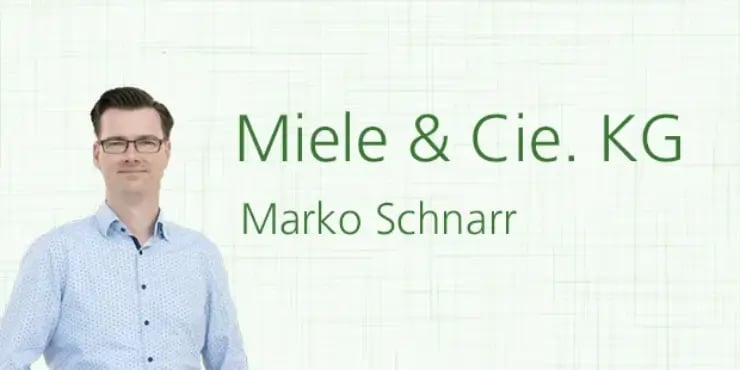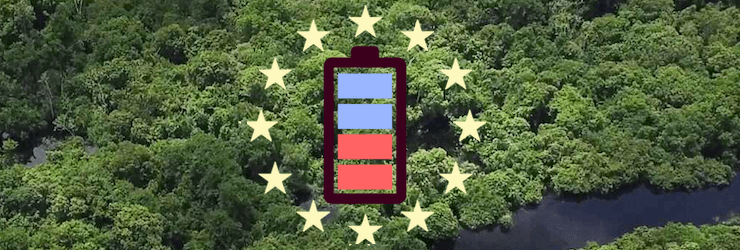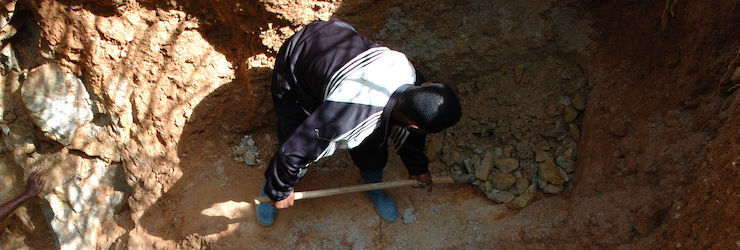Marko Schnarr ist Referent für Ressourceneffizienz, Ökobilanzierung und Ökolabelling beim Haushaltsgeräte-Hersteller Miele. Ihm ist es wichtig, die Entscheidungsmatrix um die Umweltdimension zu erweitern. Viel Spaß beim Lesen des Interviews.
Was antworten Sie, wenn Sie von Miele-Kollegen z.B. aus der Produktion gefragt werden, “warum wir bei Miele Ökobilanzen machen”?
Unsere Kunden erwarten von uns in jeder Hinsicht erstklassige Produkte. Das gilt auch für den Umweltbereich. Was das in der Praxis heißt, ist dann aber oft nicht so einfach zu beantworten. Energie sparen, ja klar, aber was sind die Grenzbereiche, wo sich das in der Lebenszyklusbetrachtung noch lohnt? Wie sind einzelne Technologiealternativen zu bewerten? Das liegt manchmal auf der Hand, oft aber auch nicht. Deshalb nutzen wir Ökobilanzen als Unterstützung für solche Entscheidungen.
Welches waren die Herausforderungen am Anfang der Ökobilanzaktivitäten?
Erst einmal mit Umberto klar kommen. Zum Glück konnten wir auf bestehende Modelle zurückgreifen, die das Öko-Institut im Rahmen einer größeren Studie erstellt hatte. Das hat den Einstieg sehr erleichtert.
Jetzt sind Sie ja schon eine ganze Weile dabei, wo liegen heute die größten Herausforderungen?
Die Datenbeschaffung ist immer ein mühsamer Prozess. Die Leute in der Produktion und der Entwicklung haben in der Regel ja eine ganz andere Sichtweise auf ihr Tagesgeschäft und oft müssen sie auch erst einmal Dinge „heraus-rechnen“, um meine laienhaften Fragen zu beantworten. Auf der Makro-Ebene wissen wir in aller Regel gut Bescheid, Ökobilanzieren ist nur eben oft mikro… und dann kommen schnell all die schwierigen Allokationsfragen ins Spiel.
Das andere ist, dass mit fortgeschrittenen Fragestellungen oft auch ein erhebliches Fachwissen für vor- oder nachgelagerte Prozesse, z.B. in Metallurgie oder Recycling gefragt ist. Das macht es spannend, ist aber auch der Grund, weshalb unser langjähriger Partner, das Öko-Institut, sehr gelassen reagiert hat, als wir angekündigt haben, selber bilanzieren zu wollen.
Wie fließen die Ökobilanzergebnisse in der Kommunikation des Unternehmens ein?
Wir bilanzieren in erster Linie für den Hausgebrauch, sodass wir mit den Ergebnissen eher in die interne Kommunikation einsteigen. Darauf kommt es mir persönlich auch am meisten an, nämlich die Entscheidungsmatrix um die Umweltdimension zu erweitern.
Wenn es um die Big Points wie z.B. 20 Jahre Lebensdauer der Produkte geht, dann kommunizieren wir das aber auch nach außen. Nur, für Handel, Verbraucher und Medien sind Ökobilanzen schwer verdauliche Kost. Die Verbraucher spüren, dass sie mit der Marke Miele auch ökologisch eine gute Wahl treffen, da kommt es nicht unbedingt auf den Einzelnachweis an.
Im Jahr 2014 wurde Miele als “Deutschlands nachhaltigstes Großunternehmen ” ausgezeichnet. Wie würden Sie den Beitrag, den Ihre Ökobilanzaktivitäten dazu geleistet haben, beschreiben?
Zu dieser Auszeichnung haben viele Aspekte beigetragen, denn zahlreiche Akteure im Unternehmen engagieren sich täglich für die vielen Facetten der Nachhaltigkeit. Ein sehr wesentlicher Aspekt war in jedem Fall die Langlebigkeit unserer Produkte. Also etwas, dass Miele seit jeher tut. Mit einer vom Öko-Institut erstellten Ökobilanz konnten wir erneut nachweisen, dass das auch ökologisch sinnvoll ist. Insofern war das vielleicht das Tüpfelchen auf dem i.
Was würden Sie persönlich anderen Ökobilanzierern als wichtigsten Tipp mit auf den Weg geben?
Ich habe mir angewöhnt, erst vollständig meine Hausaufgaben in Excel zu machen, bevor ich Umberto das erste Mal anschalte. Bei nachträglichen Änderungen an Zahlen übersieht man doch leicht die eine oder andere Transition im Modell, sofern man nicht exzessiv mit „Live links“ arbeitet. Außerdem bewahre ich sämtliche Schmierzettel mit Notizen und Hilfsrechnungen auf, sodass ich meine ursprünglichen Gedankengänge auch später im Projekt wieder leicht nachvollziehen kann.
Dankeschön Herr Schnarr!




.png)

